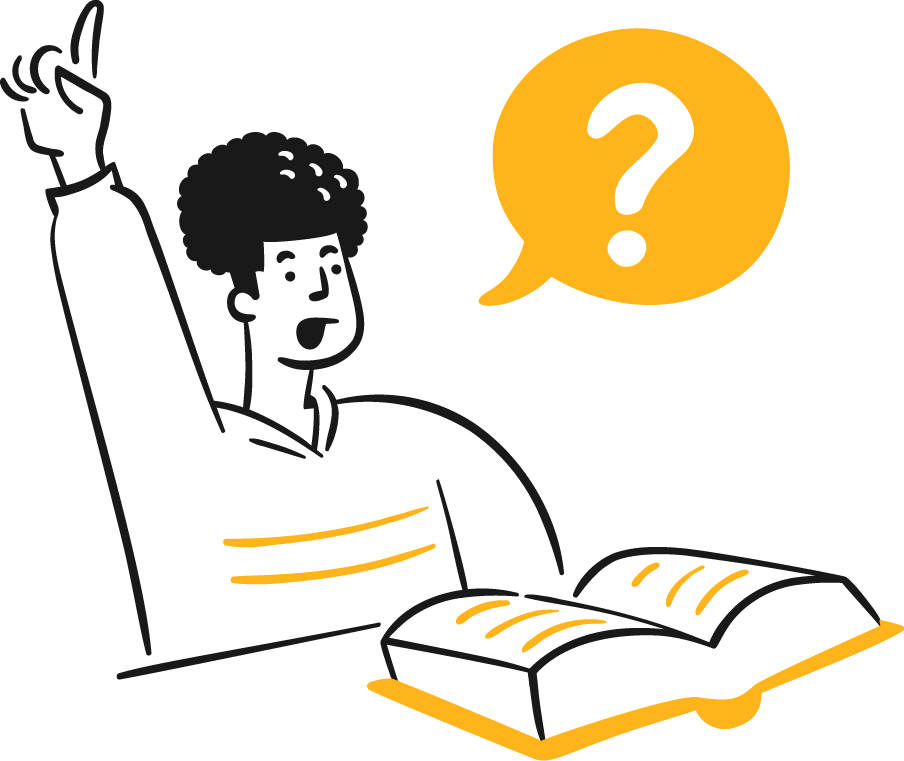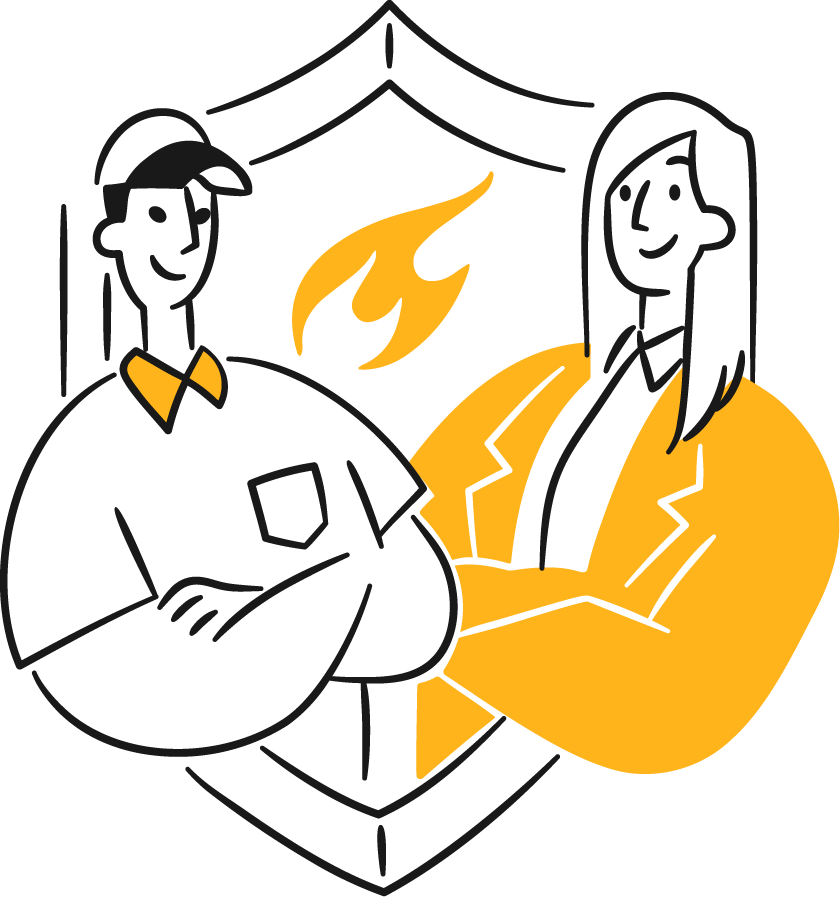Kick-start Your Teaching Guide
Updated 4 July 2024
This guide will help you find your way in teaching at TU Delft. You will find questions to ask yourself and links to tools, information, and support on central level and faculty level. Explore the five domains that are covered in this guide: Teaching Context, Responsibilities & Education Organisation, Teacher Identity and Skills, Connecting with Students, and Improving your Course. The information in the domains is structured based on some key questions, with supporting materials (links) to help answering those questions. If you want more information, please check out the Kick-start Your Teaching programme.
In this guide specific faculty information is added. To only see what applies to your faculty, please first select your faculty:
How does my teaching activity fit into the bigger picture?
Explore the course: What are the learning objectives, materials, activities and assessment of the course?
Explore the course context of your teaching by having a look at the learning objectives, content, materials and assessment of the course(s) you teach via the Study Guide.
Explore the programme: What programme is the course part of, what are the final qualifications, and how is the curriculum set up?
Take initiative to meet with the programme director, fellow lecturers and course coordinators to see how your course is aligned with previous, parallel or following courses, the overall programme, and curriculum. The Teaching and Examination Regulations (TER) includes the final qualifications/intended learning outcomes of the programme. Please reach out to your faculty's Education & Student Affairs department for advice and support. This department facilitates the organization and contributes to the improvement of education.
Want to know more about the context of Engineering Education?
Explore papers on Engineering Education.
What are my official responsibilities as a teacher and how is education working behind the scenes?
What are the important roles to know within the educational organization?
Do you want to know more about the behind-the-scenes processes of education please check out the Educational Organisation video below that will give an overview of the most important roles and their responsibilities. Moreover, the organogram will help you navigate the structure of TU Delft as a whole, of your faculty, and the different roles represented.
What are the official rules and regulations?
As an educator you have several responsibilities. It is good the know more about the context of your teaching activities and the specific rules and regulations that are applicable to your situation. Every faculty has a Board of Examiners (BoE) who handles requests regarding the Teaching & Examination Regulations (TER) and Rules & Guidelines of the Board of Examiners (RGfBE). Amongst other things, the Programme Committee/Board of Studies, an advice council for a certain programme, provides input on the TER and RGfBE. The Boards of Studies have the statutory task of advising on ways of promoting and safeguarding the quality of their degree programmes.
What are the expectations of the organisation?
In a broader context, TU Delft has drafted a Code of Conduct, meant to help you to act according to the TU Delft values. These core values are Diversity, Integrity, Respect, Engagement, Courage and Trust (DIRECT). The Code of Conduct also includes an Integrity Statement. Moreover, it outlines the responsibilities of staff members, students, guests and TU Delft as an organisation. Moreover, the Strategic Agenda 2024-2030 was presented in March 2024, functioning as a compass, broadly setting the organisation’s course. A common thread though this strategic plan is “Impact for a Sustainable Society”.
What are the responsibilities specifically of a course coordinator?
To get an idea of your responsibilities as a course coordinator, you can check out the job description from the corresponding UFO profile. UFO is the job classification system for employees at Dutch universities (since the 1st of April 2003). Your education/programme coordinator of the department Education and Student Affairs will be able to provide information on the role of a course coordinator at TU Delft. Moreover, as a course coordinator, you might also have the role of examiner in the course. A lot of information can be found in the assessment framework. Tip: within the assessment framework there is a reading guide that provides an overview of the most relevant chapters and paragraphs.
What are the formal quality assurance processes and instruments?
In every faculty, there are quality assurance processes and instruments in place to evaluate the education taking place. Get in touch with the quality assurance adviser at your faculty (ESA department). Feel free to explore the Brightspace Online Community page "Evaluations TUD".
What are other points of interest in creating (open) educational materials for my teaching, during my teaching, and for processing students’ data?
In creating your (open) educational materials, it is important to take copyright into consideration. TU Delft Library has set up a Copyright Information Point to help you into the right direction on different factors to take into consideration. If you run into issues during your teaching practice, the Service Desk is provides first-line services. When processing students’ personal data and grades, privacy is an important point of interest. Please take a look at privacy considerations for teachers.
How do I identify with my teaching role?
What is the definition of teacher identity?
Teacher identity is the way you identify with your teaching role and all different aspects related to that. This is under development from the day you start teaching. Think about questions like: What do I like about teaching and what type of teaching activities suit me well or are challenging? What choices do I make? How do I want to develop as a teacher? And what are the career opportunities in teaching?
A series of podcasts is created ‘The Adventures in Teaching’ with the aim to spotlight TU Delft teaching by facilitating conversations between early career lecturers and more experienced lecturers. Season 2 of the Adventures of Teaching Podcast explores the concept of teacher identity and how to cultivate it. It aims to inspire you to reflect on your own teaching philosophy and practices, and hopefully help you move further towards finding your own path.
What is TU Delft’s or your faculty’s vision on teaching and learning and what is your own vision on teaching and learning?
The latest version of TU Delft’s Vision on Teaching & Learning can be found below and will be integrated in the upcoming Vision on Education. These documents might help you to form your own vision on teaching and learning.
What is the teaching culture at TU Delft and how do I create a career combining science and teaching?
Science and teaching, or research and education, are often combined in academic careers. How education is valued, rewarded and recognised compared to research, might differ. Explore the different (HR) documents, podcasts, policies and research paper in the link below. For academics with a focus on education, monthly gatherings are organised on topics relevant for this community. If you are interested to join, you can send an email to Teaching Academy. Furthermore, get to know your fellow lecturers in the adventures in teaching podcast.
How can I develop my teaching skills and what training opportunities are available?
To develop your teaching skills, you can connect to your fellow lecturers in the Teaching Lab, by joining one of the educational events of the Teaching Academy. Also, there is a large portfolio of training options available including courses for continuing professional development (CPD), the (Senior) University Teaching Qualification ((S)UTQ), and the Educational Leadership Program. These trainings are offered by Teaching & Learning Services (TLS). Also, you can participate in TUnder, an initiative for facilitating teacher-to-teacher growth.
How to connect with my students?
How to build a relationship with my students in a professional way?
The Code of Conduct sets out what is meant by the core values of TU Delft: Diversity, Integrity, Respect, Engagement, Courage, and Trust (DIRECT). This document can guide you in building professional relationships with your students as well as your peers.
Where does the official responsibility for student well-being start and end?
An interesting resource to read about connecting with your students is the Duty of Care (Zorgplicht), which elaborates on the background, framing, and operationalization of TU Delft’s Duty of Care.
How can I teach in an inclusive way, to cater a diverse group of students?
TU Delft is strongly committed to becoming a university that pursues the highest standards of education and research based on values of diversity, equity and inclusion. Explore Diversity & Inclusion at TU Delft, with e.g. the D&I calendar, the D&I ambition, facts and figures and inclusive language.
What is the support system for students?
In the TU Delft Student portal, a lot of information can be found at the tile for “well-being and study” and “counselling”. This is also a place you can refer students to for their own information. In case you are worried about one of your students, an academic counsellor might be your first point of contact. The two-pager on the Duty of Care might also provide you with a better insight into your role as an educator.
What can I do when I receive feedback or a complaint?
When you receive feedback or a complaint from a student, it is first important to look at the nature of the feedback and/or complaint. Is it about a certain aspect of the course which you might want to change? Then you might want to get in touch with the educational advisors of the faculty. Is more clarity on the feedback or complaint needed? The faculty’s quality assurance adviser can help to get more clarity on the feedback. Lastly, students might contact the Board of Examiners to challenge a certain decision, or make a certain request. Good to know: the study adviser can play a role in mediating between you and a student.
How to improve my course?
I want advice on my course design or assessment. What tooling and/or support is available?
Teaching support can be contacted for support on educational tools, didactic advice or training. Specific contact details can be found for video tools & services (e.g. Collegerama), assessment & grading, and supporting your students. The website of Teaching Support also offers valuable resources such as an overview of educational tools, and information on didactics & teaching methods. Moreover, the library for teachers offers different resources for your courses, information for creating educational resources, and information regarding library facilities for education. Furthermore, there are grants and rewards available for education innovation.
Where to find inspiration (community, events, etc.)?
You can attend educational events at the Teaching Lab and meet other educators to get inspired and ask questions. Moreover, there is a wide variety of courses available for continuing professional development from Teaching & Learning Services. It is also possible to get peer feedback on your teaching from a colleague by participating in TUnder.




